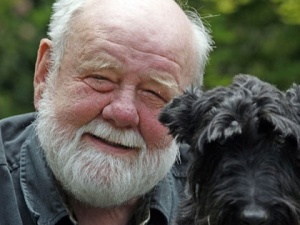History and Purpose
The William James Association is a nonprofit, community service corporation founded in 1973 by Page Smith and Paul Lee. The association is named for the American philosopher, William James, who was deeply concerned with the relationship between philosophical thought and social action. In his famous essay, “A Moral Equivalent of War,” James proposed what came to be called “work service” as a substitute for war service.
 The William James Association’s original statement of purpose declares, “the Association will direct its attention to developing various forms of peacetime service.” From its inception, the Association has had a strong commitment to some form of national (as well as local and state) work service, modeled, to a degree, on the Civilian Conservation Corps of the 1930s. In line with this commitment, the Association helped to launch the California Conservation Corps in 1979.
The William James Association’s original statement of purpose declares, “the Association will direct its attention to developing various forms of peacetime service.” From its inception, the Association has had a strong commitment to some form of national (as well as local and state) work service, modeled, to a degree, on the Civilian Conservation Corps of the 1930s. In line with this commitment, the Association helped to launch the California Conservation Corps in 1979.
One of the Association’s early projects was the William James Work Company. With the sponsorship of the Association, unemployed or marginally employed persons organized to facilitate finding jobs. In the five years of the Work Company’s existence, over 30,000 jobs were filled.
The Citizens’ Committee for the Homeless was originally under the William James Association umbrella and was the impetus for the purchase of the River Street Shelter in Santa Cruz, CA. WJA also sponsored A Free Meal, which has become Santa Cruz’s Homeless Community Resource Center. Other projects undertaken by WJA over the years include: the Penny University, Museum Without Walls, Community Gardens, Fruition, the Prison Arts Project, and related arts programs in California Youth Authority, the California Department of Mental Health, and the Santa Cruz County Jail.
 Through the vision and efforts of Eloise Smith, the William James Association began the Prison Arts Project in 1977 as a pilot program at the California Medical Facility, a prison in Vacaville, CA. Since that time, WJA has dedicated itself to providing arts experiences to incarcerated individuals in the belief that participation in the artistic process significantly and positively affects one’s view of oneself and the world. WJA’s award-winning Community Youth Arts Project grew out of the Prison Arts Program’s success and the desire to intervene with youths at risk of incarceration or other marginalization.
Through the vision and efforts of Eloise Smith, the William James Association began the Prison Arts Project in 1977 as a pilot program at the California Medical Facility, a prison in Vacaville, CA. Since that time, WJA has dedicated itself to providing arts experiences to incarcerated individuals in the belief that participation in the artistic process significantly and positively affects one’s view of oneself and the world. WJA’s award-winning Community Youth Arts Project grew out of the Prison Arts Program’s success and the desire to intervene with youths at risk of incarceration or other marginalization.
Click here for a 3.5 minute video about Eloise Pickard Smith: A Remarkable Woman, a 2021 exhibit at the art gallery named for Eloise at UC Santa Cruz.
Eloise Pickard Smith was a force of nature, creating art and bringing art into the lives of the myriad, including through the Prison Arts Project which she founded in 1977. Video by Eric Thiermann.
Paul Lee and Page Smith founded the William James Association in 1974. WJA board member Nigel Sanders-Self met with Paul recently and made these short videos of Paul talking about the origins of WJA and the Prison Arts Project. Click here for link.
 Unlocking hearts and minds with bold, original theatre, The Poetic Justice Project is dedicated to the creation of original theatre that examines crime, punishment, and redemption.
Unlocking hearts and minds with bold, original theatre, The Poetic Justice Project is dedicated to the creation of original theatre that examines crime, punishment, and redemption.
Through the passionate collaboration of formerly incarcerated writers, artists, musicians, and actors, we produce ground-breaking theatre that challenges and transforms our culture. The Poetic Justice Project was adopted in 2009 as a program of the William James Association.
Working with the Santa Cruz Sheriff’s Department and the Santa Cruz County Office of Education, WJA holds art classes in our local jails. Recent changes in state law (AB109) mean that jail inmates are serving longer terms. We believe that they should have access to the transformative power of the arts through regular fine arts classes.
TeamWorks Art Mentoring Program provides ongoing arts intervention for high-risk youth aged 11-18 in Juvenile Hall and in Alternative Education high schools in Marin County. TeamWorks promotes creative expression, self-discipline, and community engagement for youth who are underserved and economically disadvantaged.
The William James Fiscal Sponsorship Program assists emerging nonprofit groups and community organizations by providing grant-related administrative support, tax-exempt status, and fiscal sponsorship.


